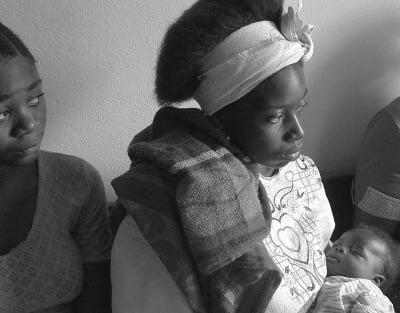The global community will commemorate the first ever international day of the girl child today, 11 Oct 2012, with the theme Too young to wed: End child marriage. This day focuses attention on the need to address the challenges girls face and to promote girls’ empowerment and the fulfillment of their human rights.
According to UNFPA Executive Director, Dr. Babatunde Osotimehin, “Child marriage is an appalling violation of human rights and robs girls of their education, health and long-term prospects. A girl who is married as a child is one whose potential will not be fulfilled. Since many parents and communities also want the very best for their daughters, we must work together and end child marriage.”
Child marriage is a harmful practice that devastates the lives of millions of girls who are married off each year, often to much older men and usually with little say in the matter. Child marriage is commonplace in dozens of countries in most regions worldwide, even where laws forbid the practice. A fundamental human rights violation, it has an impact on all aspects of a girl’s life: it denies a girl her childhood, disrupts her education, limits her opportunities, increases her risk of violence and abuse, and jeopardizes her health.
The practice excludes girls from decisions regarding the timing of marriage and choice of spouse. It marks an abrupt and violent initiation into sexual relations, often with a husband who is considerably older.
Globally, more than one in three young women aged 20-24 years were first married before they reached age 18. One third of them entered into marriage before they turned 15. Child marriage is most common in sub-Saharan Africa and South Asia. Only 15 per cent of girls aged 15-10 years in sub-Saharan Africa are currently using modern contraception. Child marriage results in early and unwanted pregnancies, posing life-threatening risks for girls. In developing countries, 90 per cent of births to adolescents aged 15-19 are to married girls, and pregnancy-related complications are the leading cause of death for girls in this age group.
Girls with low levels of schooling are more likely to be married early, and child marriage has been shown to virtually end a girl’s education. Conversely, girls with secondary schooling are up to six times less likely to marry as children, making education one of the best strategies for protecting girls and combating child marriage.
Preventing child marriage will protect girls’ rights and help reduce their risks of violence, early pregnancy, HIV infection, and maternal death and disability, including obstetric fistula. When girls are able to stay in school and avoid being married early, they can build a foundation for a better life for themselves and their families and participate in the progress of their nations.
Governments in partnership with civil society actors and the international community are called on to take urgent action to end the harmful practice of child marriage and to:
- Enact and enforce appropriate legislation to increase the minimum age of marriage for girls to 18, and raise public awareness about child marriage as a violation of girls’ human rights;
- Improve access to good quality primary and secondary education, ensuring that gender gaps in schooling are eliminated;
- Mobilize girls, boys, parents, leaders and champions to change harmful social norms, promote girls’ rights and create opportunities for them.
- Support girls who are already married by providing them with options for schooling, sexual and reproductive health services, l ivelihood skills opportunities, and recourse from violence in the home.
- Address the root causes underlying child marriage, including gender discrimination, low value of girls, poverty, or religious and cultural justifications.
Empowering girls and safeguarding their rights is at the heart of the issue. Governments, civil society and UN agencies are working together to end child marriage. Further commitment and resources are required to accelerate action that will empower girls and scale up successful interventions.
UNFPA, the United Nations Population Fund, is an international development agency that promotes the right of every woman, man and child to enjoy a life of health and equal opportunity. UNFPA supports countries in using population data for policies and programmes to reduce poverty and to ensure that every pregnancy is wanted, every birth is safe, every young person is free of HIV/AIDS, and every girl and woman is treated with dignity and respect.
Adebayo Fayoyin, Regional Communications Adviser, UNFPA, Sub-Regional Office Johannesburg
Tel: +27 11 603 5348; Cell: +27 79 517 0320; Fax: +27 11 603 5382; fayoyin@unfpa.org
Hughes Kone, Regional Communication Adviser, UNFPA UNFPA, Sub-Regional Office Dakar
Tel: +27 11 603 5348; Cell: +27 79 517 0320; Fax: +27 11 603 5382; kone@unfpa.org
Lindsay Barnes, Regional Communications Analyst, UNFPA, Sub-Regional Office Johannesburg
Tel: +27 11 603 5329; Fax: +27 11 603 5382; barnes@unfpa.org
Dr. Asha Mohamud, Technical Adviser, Youth HIV/AIDS, UNFPA, Sub-Regional Office Johannesburg; Tel: + 27 11 603 5333; Cell: +27 82 7380367; Fax: +27 11 603 5380; mohamud@unfpa.org
Website: africa.unfpa.org and www.unfpa.org
Facebook: UNFPA Africa
Twitter: UNFPA_ARO


